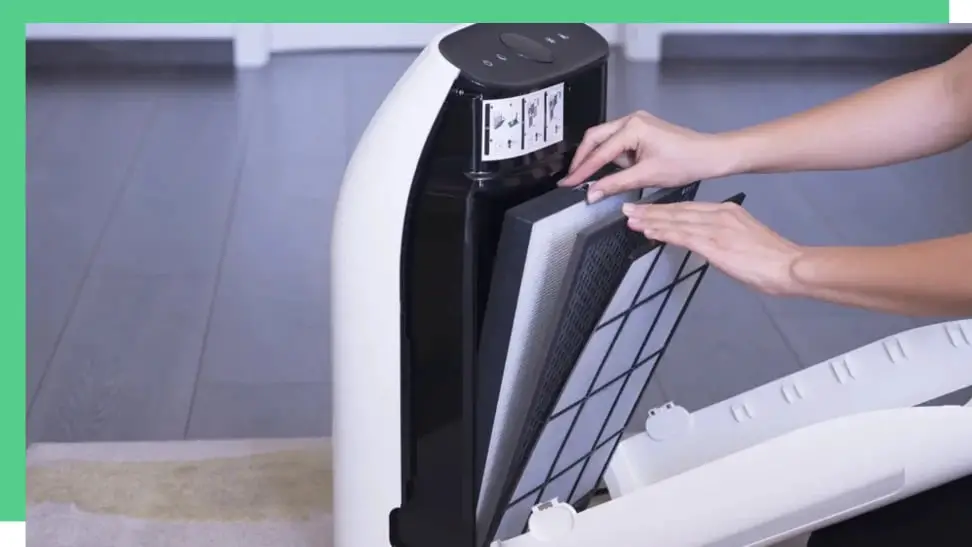Cleaning air purifier filters has become an important activity due to their ability to reduce air pollution in the home. HEPA filters specifically have been used in vacuum cleaners, air purifiers and HVAC systems for years, as these fine particulates like smoke, pollen, and mold fragments can be effectively removed from the air. air purifier cleaning?
However, with continued use of a HEPA filter comes a build-up of debris that clogs the filter fibers and reduces its effectiveness.
But not to worry – although frequent replacement is attractive to manufacturers, it is not necessary for optimal performance of your air purifier filter.
A detailed clean every few months will ensure that airflow is steady and dust particles are caught before entering your living space.
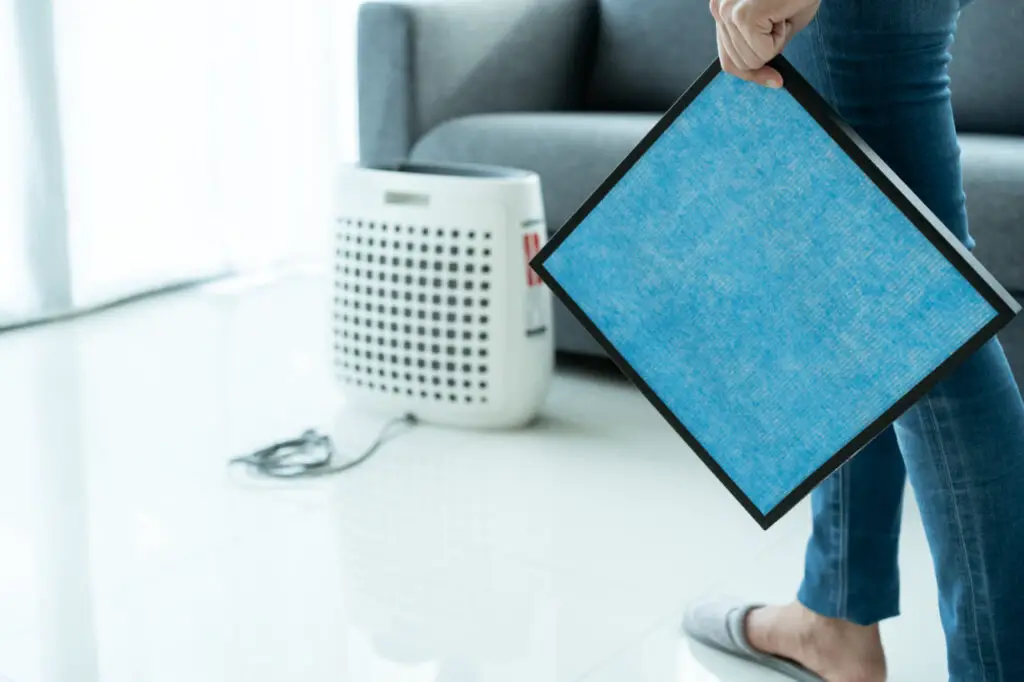
HEPA filters are highly efficient air-cleaning tools widely used in home air purification systems. They are capable of trapping particles as small as pet dander, reducing and eliminating airborne impurities.
While the performance of a permanent HEPA filter is beneficial, it also seems daunting to imagine having to clean an entire unit.
However, the answer is not as straightforward as it may seem.
This article will explore what HEPA filters are made of, examine different types of HEPA air purifiers, and determine if they can be cleaned–and how to do it properly in order to ensure that your filter continues to work effectively and efficiently.
Through proper understanding of your air purifier and its cleaning needs, you can ensure cleaner air for years to come!
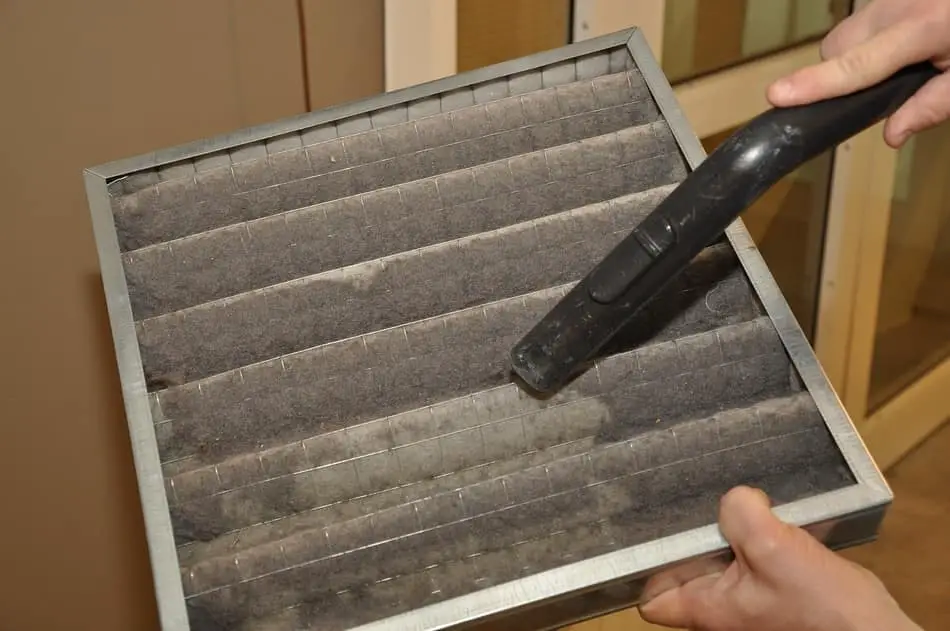
What are HEPA filters made of?
HEPA filters are the industry standard for air filtration, capable of removing 99.97% of harmful particles no larger than 0.3 micrometers from circulating air – that’s about 300 times smaller than a human hair!
Cleaner indoor air and improved safety in homes everywhere is made possible with this incredible technology.
HEPA filters are complex creations, crafted from a range of materials and featuring several elements.
These may include coarse glass fibers, animal hair-based coating, synthetic foams or metallic wools to name just a few – all compressed together into pleated sheets that boost the surface area through which air can pass.
The frames they sit upon come in various shapes too: cardboard, wood plastic or metal; while manufacturers often add extra components like pre-filters for larger particles, activated carbon to trap odors and gasses all those particles, as wellas chemical treatments so particles adhere better.
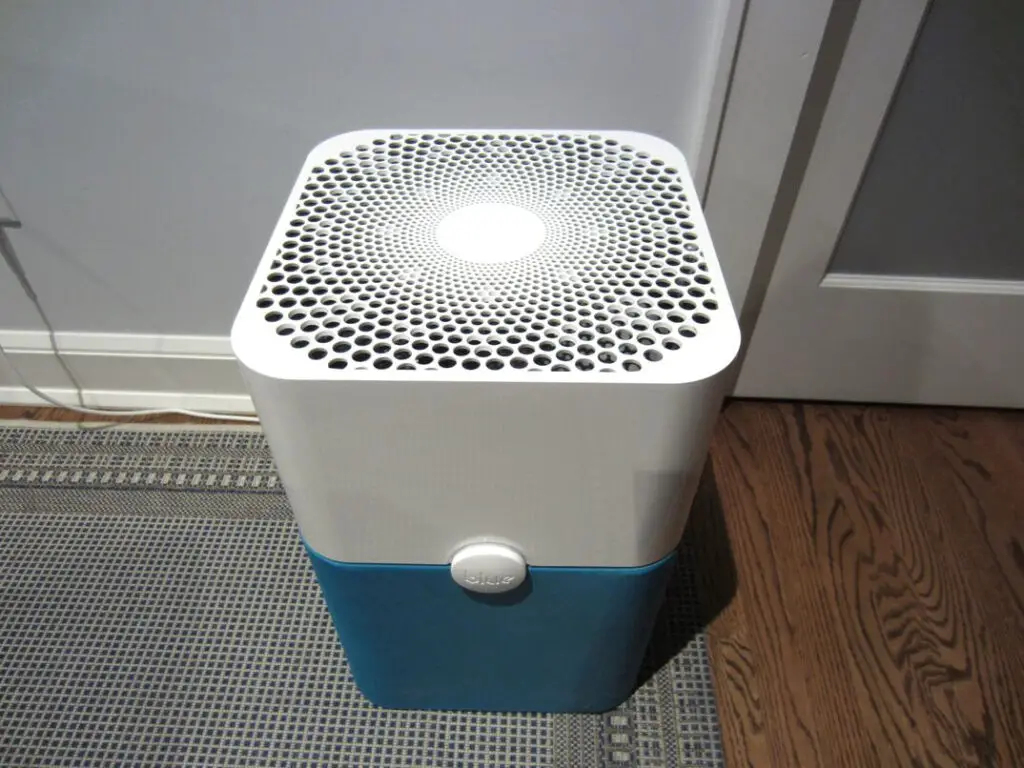
Where are HEPA filters used?
HEPA technology has come a long way since its initial use in research, nuclear testing labs, research and industrial facilities for the purpose of containing radioactive particles during nuclear testing. Nowadays, these air filters can be found helping to purify environments everywhere from homes to businesses!
- Air purifiers
- Vacuum cleaners
- HVAC systems
- Cars
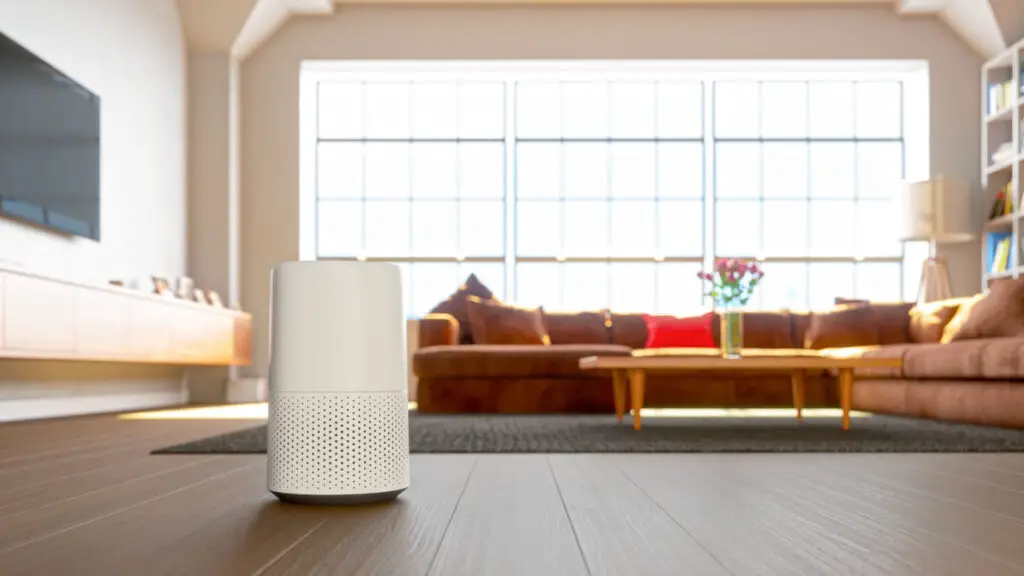
How is a HEPA filter used?
For those struggling with indoor air pollutants, air cleaners and HEPA filters can be a lifesaver. Although they are often expensive and require some maintenance, they can make a huge difference in the air quality of your home and provide relief to those with allergies or asthma.
When cleaning an air purifier, pre-filter media capturing larger particles should be cleaned on a regular basis as well as the permanent HEPA filter every 6-12 months.
The pre-filter is necessary for the longevity of air purifier filters your permanent HEPA filter by trapping the dust mites and other allergens that normally would just pass through the permanent HEPA filters to filter. Cleaning your filters will ensure you are reaping all the purifying benefits from the cleaner and keeping your indoor air safe from harmful particles.
To improve air quality in your home, installing a HEPA filter for use with an HVAC system or air purifier filter may be beneficial. Studies have indicated these systems can reduce the particulates floating around, yet sometimes other forms of pollution are too small to catch – not all bad things come in large sizes!
Thankfully additional technologies exist that specifically focus on catching pesky chemicals which would otherwise fly through even the most powerful filters.
You may also be interested: Humidifier tips: What kind of water to use in humidifier
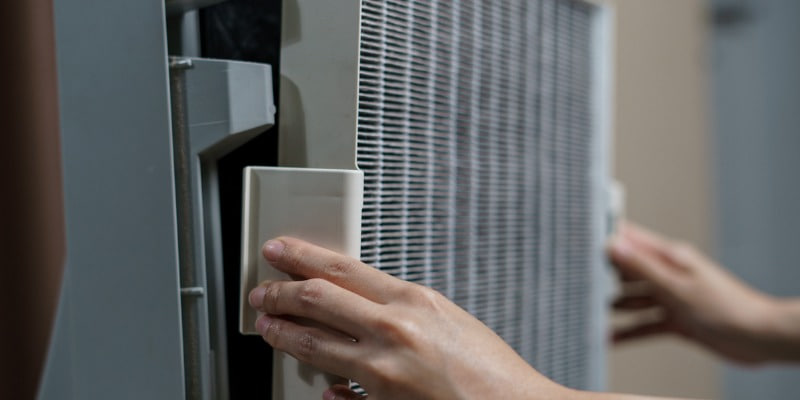
Air purifier cleaning?
Making sure your HEPA filter is working properly and maintained to maximize air quality comes down to its composition. If it’s not labeled as washable or “permanent,” then a rinse in a warm water once, tapping off excess dust or vacuuming may appear effective but can actually cause damage and reduce the filters ability over time – leaving you with an aesthetically clean filter that doesn’t do what it ought!
HEPA filters are only reliable if the fibers remain carefully woven, undamaged completely dry and securely fastened. Any disruption to this delicate combination of materials can render them ineffective; air flows around dirty filter instead of through it and dirt passes straight by its grasp. It’s a case of ‘perfection in design’, so ensure your filter is regularly maintained for maximum performance!
With a washable filter or permanent filters, you may think that a simple rinse and clean is all it takes to keep them functioning properly. But the fact of the matter is there’s no universal rule for what counts as ‘washable’ in an HEPA filter; public studies on synthetic fibers and their post-cleaning effectiveness are practically non-existent. It could be that manufacturers have found some way to make sure their fibers won’t take damage during cleaning – but ultimately, we just can’t know for certain!
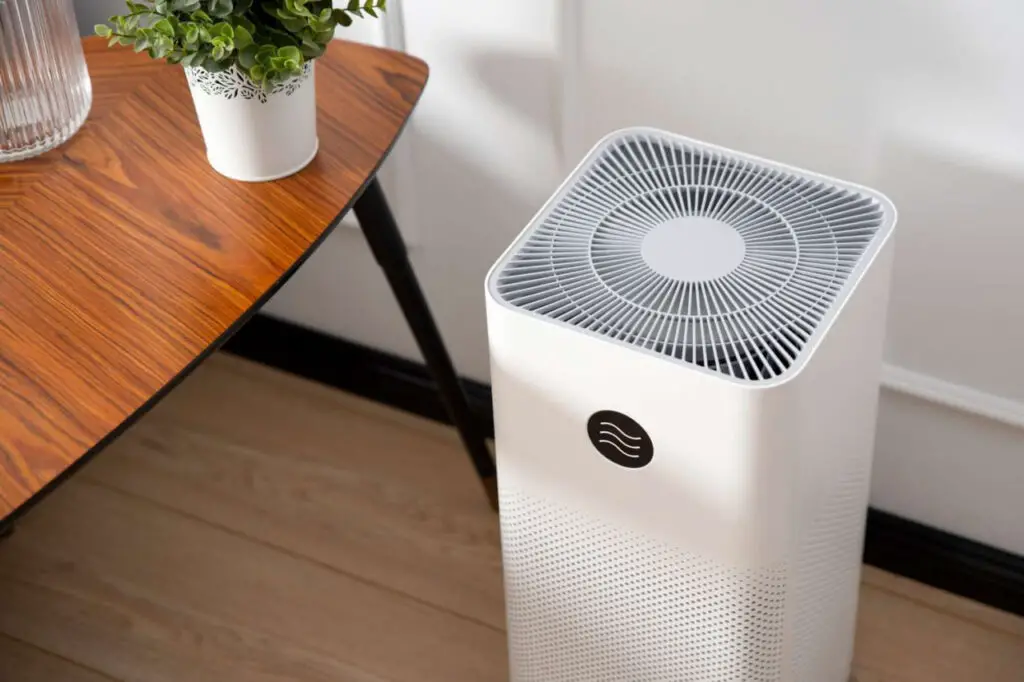
Why might cleaning a HEPA air filter be a bad idea?
While we may think cleaning a HEPA filter is the right solution, it could actually do more harm than good as there’s always inherent risk of damaging its ultra fine mesh.
Not to mention other potential dangers that arise – like reduced performance and air quality post-cleaning – making this not an advisable choice for your home’s filtration system!
- While removing airborne pollutants in your home is the main reason for investing in a HEPA filter, cleaning them may be counterintuitive since it can release those same contaminants back into the air. Not only that – there’s also an increased likelihood of bringing dust, dirt and any microbial growth from the old filter back inside. It’s no wonder why giving filters a thorough clean outside is often considered to be one of life’s most unpleasant tasks!
- While cleaning your air filter may be necessary for optimal performance, you should proceed with caution. Even if the task is completed outdoors and away from your home, some hazardous particles can still find their way into the atmosphere – making it crucial to wear a protective respirator before engaging in the sanitizing process! Ignoring this safety measure could lead to an irritating allergic reaction caused by breathing in these airborne contaminants.
- In order to keep the air clean while cleaning your filter cleaner, you must use a vacuum with an additional HEPA filter. Otherwise, particles from the dirty canister will disperse throughout and leave your environment contaminated. But then how do we ensure that our trusty vacuums remain dust-free? The answer: by using another filter of equal or greater power!
- If you want your air to stay clean and healthy, make sure that any HEPA filter is completely dry before use – a wet filter risks harboring mold. The intricate mesh of fiber in these filters can take up to 24 hours for drying, so plan accordingly if you don’t want an interruption in your filtering process!
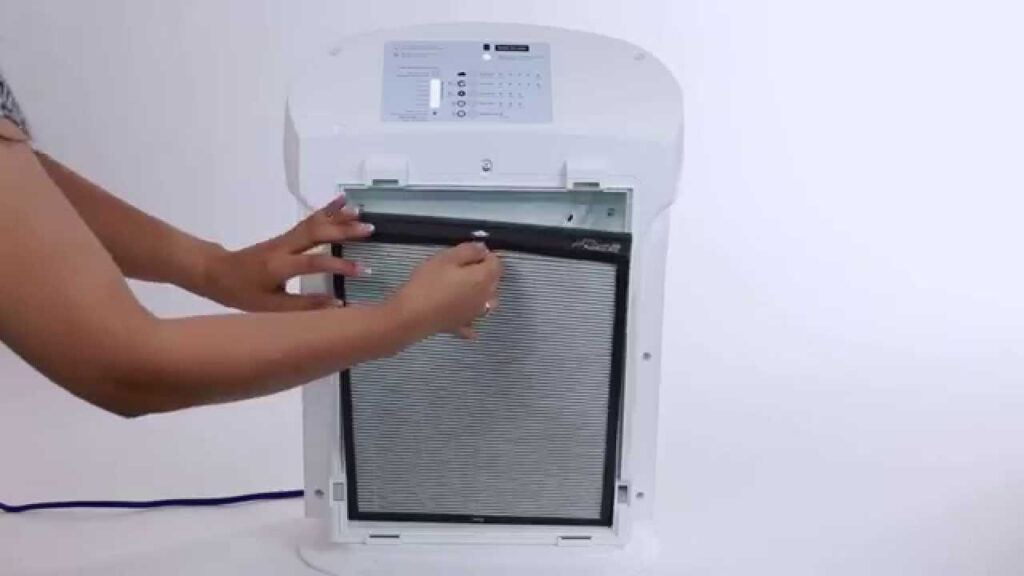
How to clean a HEPA filter if you have to
HEPA filters are recommended to be replaced instead of cleaned, but there is still a way you can take care of dirty filters if necessary.
Depending on the type of filter in your possession – manufacturers use terms like ‘washable’ or ‘permanent’ as descriptors – choose one out of two available methods for properly cleaning and maintaining it.
Keeping your HEPA filter clean is easy! Start by a damp cloth and rinsing it under cold water – just try to avoid contact with the actual filter material. After a thorough rinse, leave it out in the open air to dry completely before putting back into use. Special care should be taken for canister-type filters, as only their outside surface needs washing and moisture must not come near its central part.
Keep your air clean with a HEPA filter or vacuum cleaner that never needs replacement! Simply use a vacuum cleaner’s gentle suction to remove dust and other particles from the surface without water for long-lasting filtration.
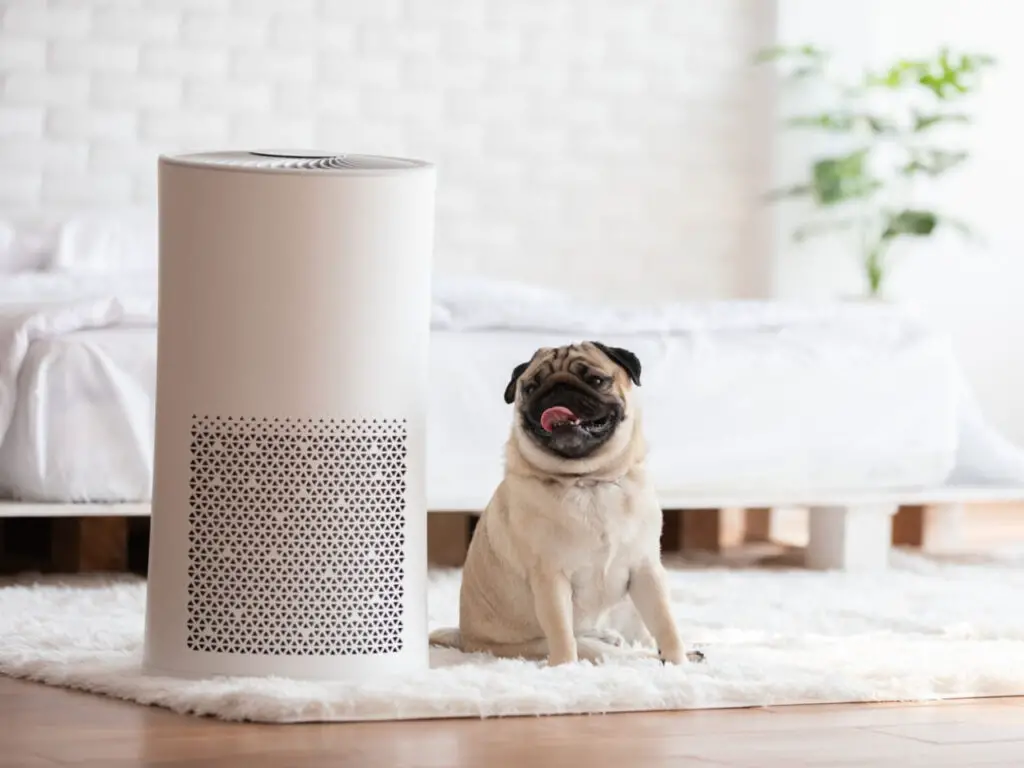
Other ways to improve indoor air quality
Create a breath of fresh air in your home – without breaking the bank! It is true that HEPA filters can help improve indoor air quality, but they come at an elevated cost. Instead, try some low-cost methods to reduce pollutants and keep your living environment safe and healthy. From ventilation to plant maintenance, there are several strategies available for achieving clean indoor air on any budget.
- To keep the air clean, restrict smoking to outdoor areas and find designated spaces for pets. Let’s work together towards a cleaner environment!
- Carve out some time each week to spruce up your surroundings. Give the floor a thorough vacuuming and dust off any surfaces so you breathe in fresh, clean air!
- Unlock your home to the great outdoors! If weather and environment are okay, open some windows for a breath of fresh air – it’s especially important when using any harsh chemicals in the house. But if you live near an area with high levels of pollution, be sure not to disturb that airflow too much!
One of the simplest and most cost-effective ways to clean your indoor air pollution is to use an air purifier. HEPA filters are excellent at trapping airborne particles like dust, mites, mold spores, and pet dander, but they can’t filter out chemicals on their own.
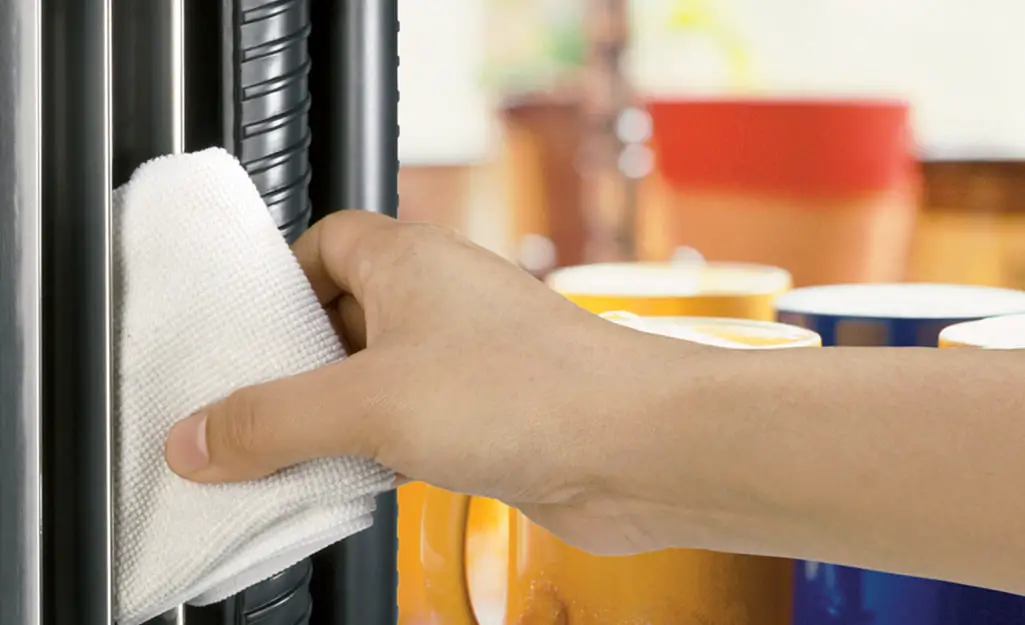
For that, it’s usually best to pair a HEPA filter with an activated carbon filter which specializes in removing odors and other chemicals from the back clean an air purifier.
While carbon filters are incredibly effective at what they do, their drawback is that they need to be switched out and replaced regularly. An easy solution around this problem is to opt for a portable air purifier with washable HEPA filters so you don’t have to keep buying new replacement filters. This way you can clean the unit yourself and enjoy clean indoor air without having to worry about replacement costs.
Molekule’s PECO-filters provide high efficiency particulate air (HEPA) quality that goes beyond removing simple air pollutants. The new filter technology not only physically captures the particles, but it also breaks down and destroys organic compounds like VOCs and biological contaminants like mold spores on contact with its filter surface.
This cutting-edge filter design stops pollution from being recirculated into the air due to the tap excess dust before it has time to spread.
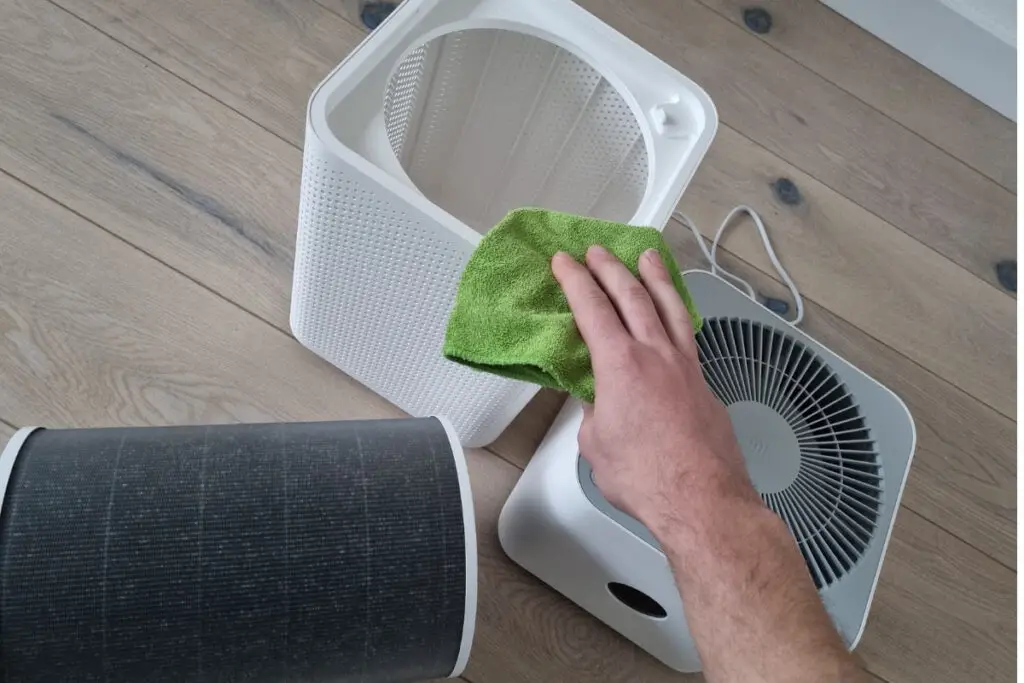
Moreover, its high-performance filters are custom designed and replaceable, so when a filter starts to get too dirty it can be removed promptly before it compromises the cleanliness of your home.
When we buy a disposable HEPA filter, we assume it will efficiently clean the air from pollutants, dust particles, and allergens. However, without proper testing on cleaning such disposable filters with water or a vacuum cleaner, it is difficult to predict how well these disposable filters will perform afterwards.
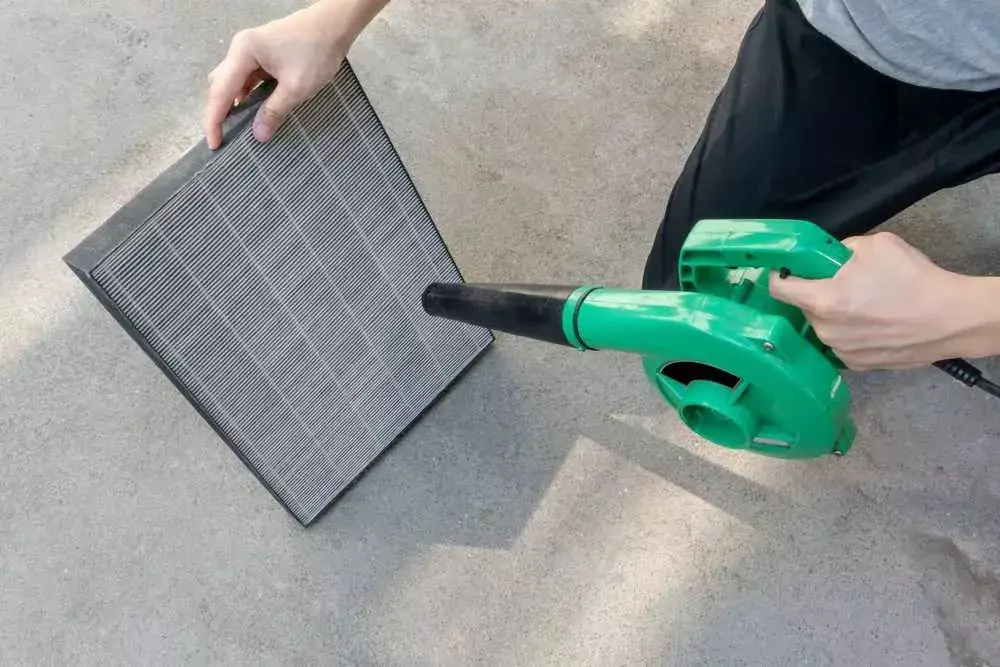
Washable filters are an alternative that can be used over and over again; they last much longer than disposable filters due to their extremely fine mesh and activated carbon content which remove pollutants in the air.
If you are looking for a HEPA filter to use over a long period of time, consider washable filter ones as opposed to disposable ones so that you may rest assured of its quality after each wash.
Read more: Do air purifiers give off radiation: Facts
Read more: Do air purifiers give off radiation

